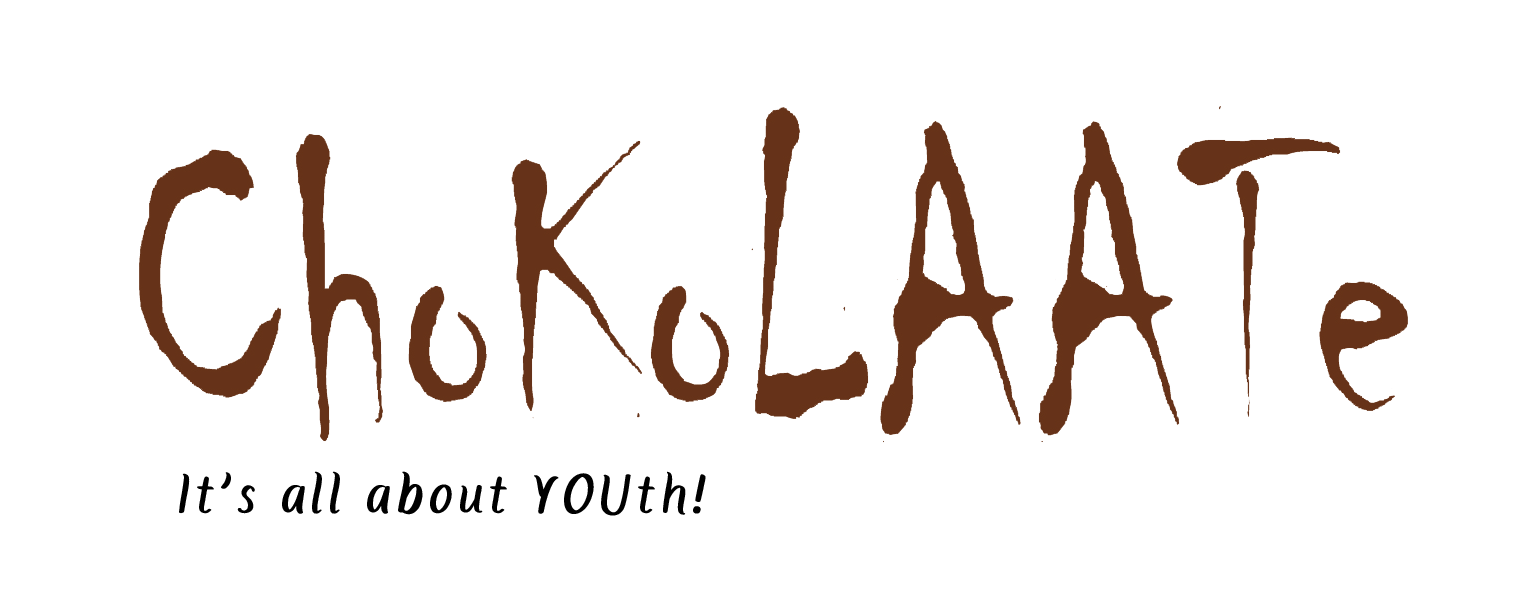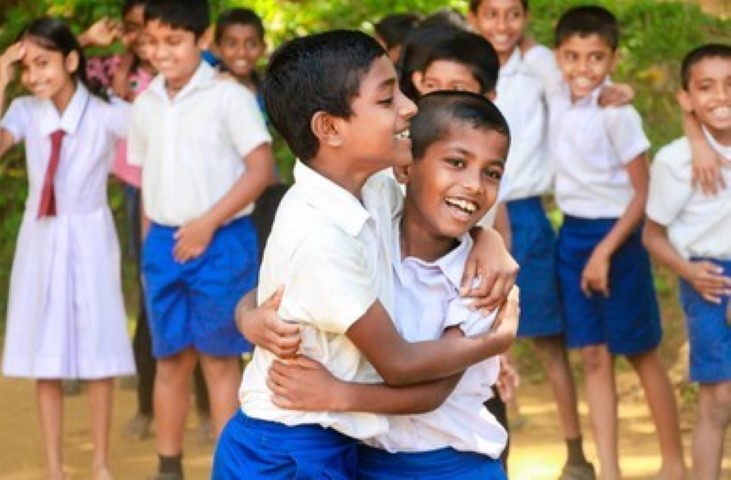A Look Back
“Humans are fascinating creatures, no? We think of ourselves as the most advanced among all the Earth’s species (which is quite egotistical if you ask me) and maybe we do have the right to deem ourselves as such. We have changed the world so much for the sake of making our daily strife, even the littlest things easier and more digestible. And that’s all fine. We have organized ourselves into groups with people who are similar to us so that we may not feel like we are alone…”
At this point I know that half the audience of sixth to eleventh graders is already asleep. Even I found the school assembly on Monday mornings to be draining on the body and the soul. But we must be willing to be a little uncomfortable if we are to learn, if we are to grow.
When I look out into the sea of children in crisp white uniforms seated in the hall, tanned and red from playing in the hot Sri Lankan sun, I try to spot myself, even though my own childhood is long behind me. I am a woman now, but I was not always so. Or maybe I was, just not physically. I glance at the little boys who cannot sit still in the front row and I see the tall girl in pigtails, the head girl, marching down the side of the hall, probably to give the front-benchers a piece of her mind. I see myself in both and in neither.
My weekly announcement being done, “Sri Lanka Matha” having been sung, the students file themselves neatly into rows as they walk into their classrooms. Conformity, even in this smallest thing, irks me to my core. Children are like water, they take the color and shape of the places they are in, the people that they meet. They should be allowed to flow into whatever they want to be. For the sake of fulfilling my role as a headmistress, however, I let this slide.
As I walk back to my office, I think to myself how when I was young, the head prefect would not have been able to study alongside me. This was once a school for boys. We never saw anything wrong with that. We were perfectly fine with the way things were. Comfortable even.
It was then that the provincial council decided that it was better to combine the only two schools in town, the boys’ and the girls’ to create one school. Everyone knew that the decision was made because of budget cuts, but I remember reading the official newspaper announcement that was made having big words like “integration” and “mixing” and “social adaptation”, that did not make sense to me at the time. The hypocrisy and the irony are not lost on me today.
I remember walking into school, oblivious to the change, and being baffled by seeing all the girls, clinging on to their parents and gripping on to their back packs for dear life. “What were they doing here? What did they want? What were they planning to do? What are they trying to change?” I thought to myself. Hostility was the first reaction that I had.
I remember a lot of parents being quite hostile as well and this was not limited to one side. I look back at how our principal handled the situation and I continue to be in awe of that man. He said “I don’t know what you all are fussing about. All of them are students. All of them are children. They are here to learn, and we will be giving them an education. Whether they are girls or boys, or cabbages is none of my damn business.” Thus, a man not so eloquent, unknowingly changed the fabric of our small school. I wish he could see me now (as, in his own words, the “cabbage” that I am) as the custodian of the school he made
better in so many ways.
Some of my teenage contemporaries were quite happy with the arrangement of having girls share our classes with us. One of my classmates was rather boisterous in saying “We’ll not have to sweep classrooms anymore since there will be girls to do that for us. They can’t force us to do Home Science either. That’s a girls’ subject!” Luckily or unluckily for him, our principal just happened to be walking past and heard this flamboyant remark. The next day in the dreaded assembly he announced that every student will have to contribute equally in all school activities and that no one gets a free pass under any invalid circumstance. As a child, while I loathed not getting a get-out-of jail-free card and cursed the principal for what seemed to be a rash decision at the time; as an adult; as a woman and as an educator, I realize now how important this small act of unconformity was. I learnt that there was no such thing as boys’ subjects and girls’ subjects; there were only “subjects”. There was no women’s work and men’s work; there was only “work”.
The past is intoxicating. I visualize myself as the little boy I was engaging in the idle horseplay; and I also try to see myself as the little girl that I should have been. My childhood, unique in its very own way, was precious. As is the childhood of every single child within this vicinity. My daily stroll through the school is my reminder of this.
I pass the school’s Mathematics teacher making her way down to her classroom along the smooth concrete paths on her wheelchair. I nod to her in greeting and I hear someone clear their throat behind me. I turn to find two men and a young girl.
“Good morning” I say, “Can I help you?”
Visibly uncomfortable, one of the two men, the taller and scruffier of the two, says “Yes Ma’am. We just moved here to this town and we want to enroll our dau….” he hesitates, “…this girl in this school”
“Please follow me. Let’s talk.” I gesture for them to come with me.
The two individuals follow me to my office and stop dead in their tracks near my door. They stare bewildered into the room. At first, I was confused. I follow their gaze which is set on my table, upon which there is a rainbow-coloured flag. The change in them is instantaneous. I feel comforted knowing that they no longer feel the need to pretend, a feeling I used to know all too well. They hold hands as they step confidently into my office.
My office is so much like my father’s. One of four walls is lined with a shelf adorned with books and photos; photos taken at the kovil with my mother and at the church with my father who were both people of fact as well as faith. They were different, not only from each other, but from other families as well. The sneers of our nosy neighbours at my father when he held my hand as we walked to school and the loud “did-you-know-so-and-so..” whispers bore plenty of evidence to the very open disapproval many had towards my family. Despite this, I marveled at how my mother and father were able to keep their love alive and thriving while they were with me, how their differences were always a strength and never a weakness. Maybe this pair in front of me is not so different from my own parents, because they too are
different. I wonder how many nosy neighbours they will find in their new home and how often they will get sneered at. I hope that these parents will be able to fend them off much like mine did. Something tells me that they will, and that I will help them.
The parent who spoke to me earlier seems to be the more vocal of the two. I notice then that the other parent glances back and forth between his partner and me with a look mixed with both confusion and terse concentration. I casually slip into Sinhalese and he becomes much more comfortable in asking me questions. I want to blame myself for not taking note of this sooner. Not being able to understand and not being understood; a cherry atop the sundae of powerlessness that must have been force fed down the throats of these men on a daily basis. Nevertheless, I feel comforted knowing that both of them are now at ease in communicating with me.
The formalities taken care of with no issue, and their daughter introduced to what will be her new classroom, the family departs shortly afterwards with promises to show up bright and early the next morning to begin lessons. It’s all in a day’s work
The morning is still fresh and the dewdrops on the trees outside my window reflect the soft sunlight in the colours of the rainbow. Through the trees, I see some of the students adding the finishing touches on a painting on one of the walls of the main hall. It’s a sight that we see quite often, almost to the point of it being a cliché: the white dove carrying an olive branch. Yet as I watch the students, young and old, converging at this point flocking to see its completion, it ceases to be a symbol for me. I smile and resume my work.
Piyumi Wattuhewa

